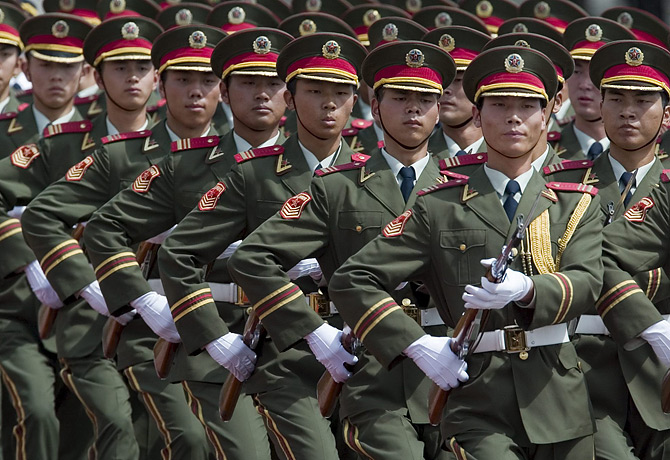To mark the 70th anniversary of the end of World War II next week, Chinese legislators are reportedly considering an amnesty for prisoners who fought in wars against the Japanese, Nationalists, and others since 1949; who are elderly or physically disabled; or who committed minor crimes while under the age of 18. Those who committed crimes involving violence, corruption, or national security will be ineligible, excluding many fallen officials and political prisoners.
Even as the authority of President Xi Jinping comes under question amid financial turmoil and reported resistance to policies including his signature corruption crackdown, the amnesty has been cited as a display of his formidable personal power. From Josh Chin at China Real Time:
What is remarkable about the pardon, according to one veteran American expert on the Chinese prison system, is not the number of prisoners to be released – which is likely to be small – but rather what it says about the status of Chinese President Xi Jinping.
[…] If approved, the prisoner release would be only the eighth such pardon since the founding of the People’s Republic and the first since 1975, when China was crawling its way out of the Cultural Revolution. The first, in 1959, was ordered to commemorate the 10th anniversary of the country’s founding.
[… John Kamm, executive director the Dui Hua Foundation] has proposed special pardons in China on two occasions, once ahead of 2008 Beijing Summer Olympics and a year later for the 60th anniversary of the country’s founding. In both instances, the idea of a pardon attracted support from legal experts and local media, but judicial and foreign affairs officials threw cold water on it, he said.
“In the end nothing was done because, as several officials told me, only Chairman Mao had the power to make such a decision, and no chairman since the Great Helmsman dared to issue a special pardon,” Mr. Kamm said. “Xi once again demonstrates his self-confidence.” [Source]
A 2009 post at Dui Hua provides more details on the 1959 amnesty.
Global Times’ Hu Qingyun reports other interpretations of the proposal:
Qin Qianhong, a constitutional law professor at Wuhan University, told the Global Times that the act shows the Chinese government’s confidence in its governance and legal system.
“To release some felons back to society demonstrates that the country has the ability to remold them into law-abiding citizens and maintain stability,” Qin said. “It can help China set up a civilized and law-abiding image and an image that the country pays attention to humanitarianism.”
Wang Ping, a criminal law professor with the China University of Political Science and Law, said that the move is in line with the rule of law and will help promote the authority of the Constitution.
“The concept of amnesty has been written in the Constitution but has not been used for decades. The act can increase public awareness of the law and build confidence,” Wang told the Global Times.
[…] To apply special amnesty to people who have made wartime contributions could also inspire patriotism, as it shows the country’s respect for veterans, Wang said.
Qin added that the amnesty also demonstrates that China is a country which promotes pacifism. [Source]







